Tell me, what is it you plan to do with your one wild and precious life?
—Mary Oliver
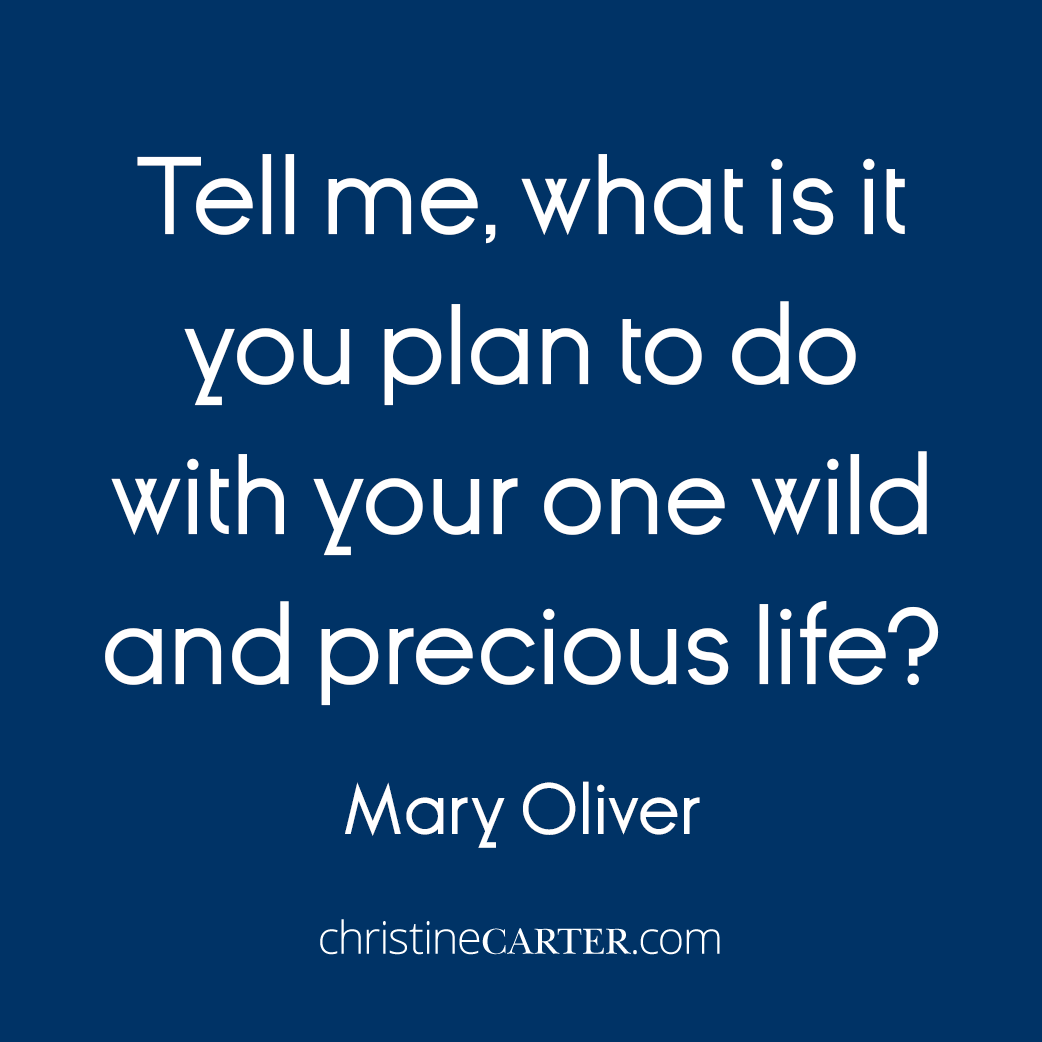

Tell me, what is it you plan to do with your one wild and precious life?
—Mary Oliver

Happy New Year!! I’ve teamed up with a few of my favorite authors to offer you the chance to win signed copies of these great happiness and productivity books.
Click here for a chance to win!
It’s not to late to join our Brave Over Perfect coaching group! Our next live call is on January 10th. That gives you plenty of time to listen to the call recording where I laid the foundation for setting goals and thinking about changes you’d like to make in 2018.
Our Brave Over Perfect coaching group is a highly effective and extremely inexpensive alternative to life coaching and, for some people, therapy. If you’re interested in personal growth, this is less a lot less work than reading a book (and at only $20 for three calls, it’s totally affordable).

It’s not to late to join our Brave Over Perfect coaching group! Our next live call is on January 10th. That gives you plenty of time to listen to the call recording where I laid the foundation for setting goals and thinking about changes you’d like to make in 2018.
Our Brave Over Perfect coaching group is a highly effective and extremely inexpensive alternative to life coaching and, for some people, therapy. If you’re interested in personal growth, this is less a lot less work than reading a book (and at only $20 for three calls, it’s totally affordable). Learn more or Register now.
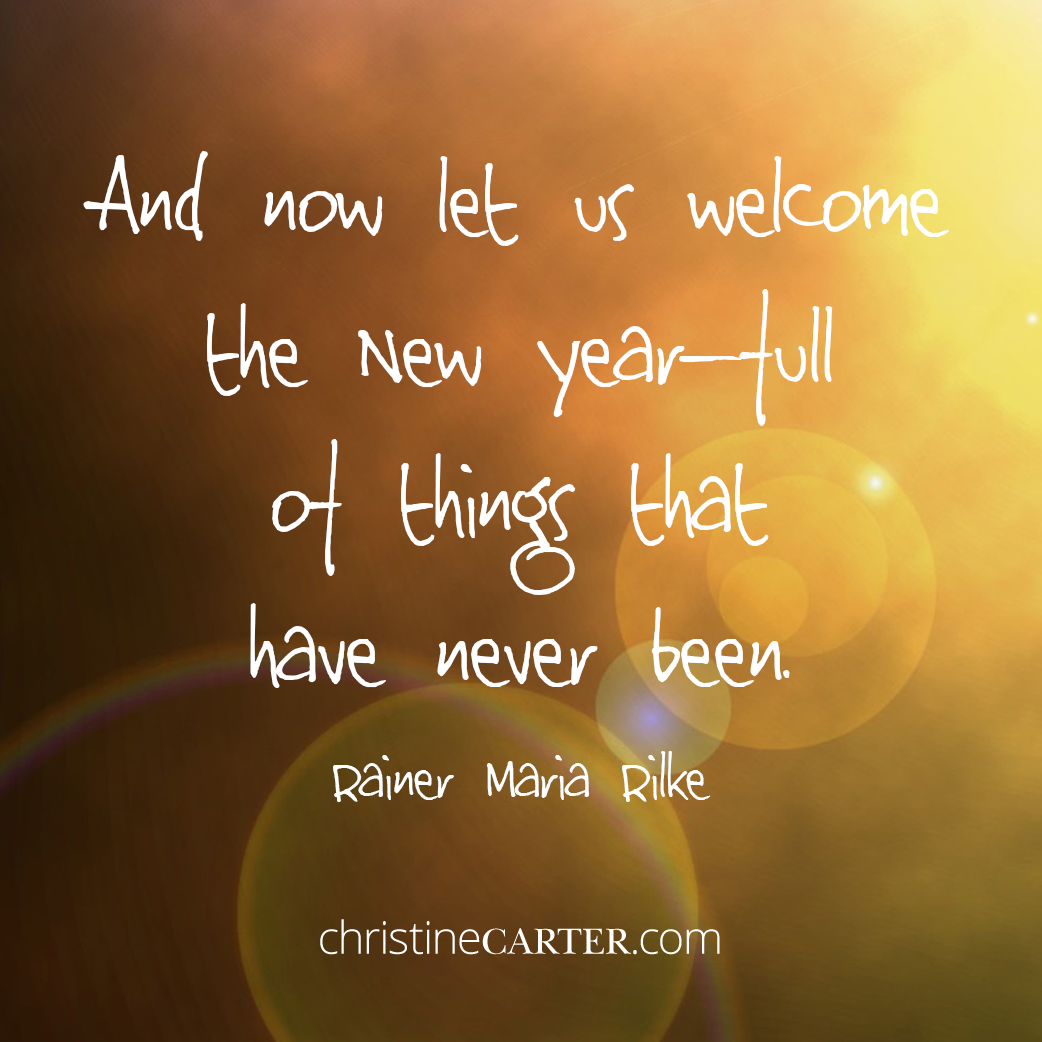
And now let us welcome the New Year—full of things that have never been.
—Rainer Maria Rilke

Emerson once wrote, “The glory of friendship is not the outstretched hand, nor the kindly smile nor the joy of companionship; it is the spiritual inspiration that comes to one when [we] discover that someone else believes in us and is willing to trust us.” When we are making lifestyle changes, it is best not to go it alone–we need to know who else believes in us, who trusts that the changes we’ve made are going to stick.
And when we changing the way we interact with our devices, we’ll do well to tell our family, friends and co-workers that we are establishing a strategic checking schedule and going through a digital detox.
You don’t have to be the president to need a cabinet of close advisers for advice and inspiration, so surround yourself with people who understand what you’ve been working so hard on, and can support you going forward. I can’t underscore enough how critical this is for success.
The first and most obvious reason that we need a support team is that our friends and family can help hold us accountable, acting as a bit of external willpower when our self-control falters. This is especially important during a digital detox! Our friends know when we are acting addicted to technology again; they can see the timestamp on our emails.
Most of us care what other people think of us, and when we make our intentions public in some way—even if our public is just an inner circle of close friends—our intentions have more power.
Beyond that, other people can keep us on track when we are so depleted that we no longer care what other people think. Our friends can refuse to respond to texts that come after our bedtimes, for example, and they can help us shut our computers down when it is time to take a break.
Second, there is a plethora of empirical evidence that we are herd animals, and we typically do what our peers do. (Please don’t think you are the exception to this rule. While I don’t doubt that you are in many ways a maverick, odds are that you also look and act a lot like your peers in many other ways.) Compelling research demonstrates that our behavior is influenced not just by our friends but by our friends’ friends’ friends. Because the behavior of others is highly contagious, we do well when we hang out with people who are already in the types of habits that we are trying to maintain. At a minimum, this means finding people at work who are succeeding at leaving their work at work.
Help is a good thing. Surround yourself with people who want to better themselves.
Tell folks you are working with a productivity expert (that’s me), and she’s coaching you to find more focus, flow and enjoyment at work and in life. You’ll only be checking your email at two or three set times per day. Tell them you expect to be able to respond more thoughtfully to email this way, and that when you’re with them, you’ll be fully present. Perhaps invite them to a smartphone-free lunch.
Worried that people will see you as unresponsive or slacking at work?
Leslie Perlow’s research indicates otherwise; in fact, research suggests that your colleagues will likely notice your increased productivity and see you as more collaborative, efficient, and effective when you reduce constant phone and email monitoring.
This is a recommended practice from a series about gaining control of your time, attention and energy in my online course, The Science of Finding Flow. Learn more about this activity by checking out Unit 3, Detox, The Science of Finding Flow.

Would you put it on your nightstand and reach into it first thing in the morning? And then carry it with you to the bathroom? And then set it next to you while you try to eat a healthy breakfast? And then put it on your car dashboard as you drive to work? I didn’t think so.
If you are using your smartphone as an alarm clock, you’re probably tempted to check your messages before you even get out of bed. Is this really the best way to start your day? Maybe it is. Perhaps checking your email is your highest priority, and you have time for it before breakfast. Perhaps working with your head still on the pillow doesn’t disrupt your sleep, and you can actually do good work that way.
If that isn’t you, however, you aren’t alone. Most people do much better work when they put off checking their email until they are actually at work. Here’s an easy solution. Bury your email application on your phone in a folder on a back page. That way, when you turn off your alarm, you won’t see your email icon, and you won’t see how many unread emails you have. This is akin to hiding Halloween candy from your children so they don’t start begging you for a piece first thing in the morning, when they see it. If that strategy doesn’t work (because you are, um, addicted), remove your email from your phone altogether for a few months, or use an old-fashioned alarm clock until you’ve kicked the habit.
Most people do much better work when they put off checking their email until they are actually at work. Share on XThink of it as a tool, like a hammer, that you don’t need to pull out until one of your strategically designated times. (If you are a parent, make the adjustments you need to in case there is a call from your child’s school or another kind of emergency.)
Get creative: consider removing email from your phone, or at least moving it to a back “page” of apps, so that you don’t see it if you are turning off your alarm or using another app. Dig up your old-fashioned alarm clock, update your car’s navigation system, and put that digital camera back in your bag for the times when getting a call or text will tempt you even if the sound, vibrate, and all other alerts are off.
This is a recommended practice from a series about gaining control of your time, attention and energy in my online course, Science of Finding Flow. Learn more about this activity by checking out Unit 3, Detox, here.
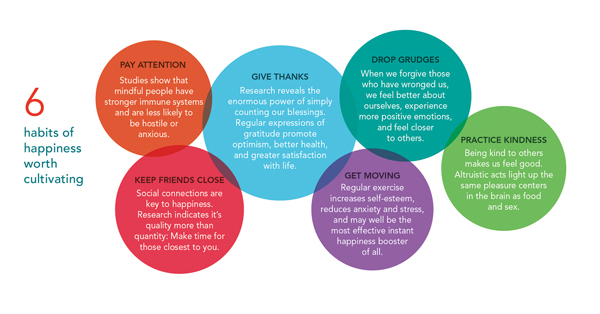
Happy New Year! Do you need some ideas for how to be happy in the New Year? Check out this oldie but goodie Greater Good graphic!
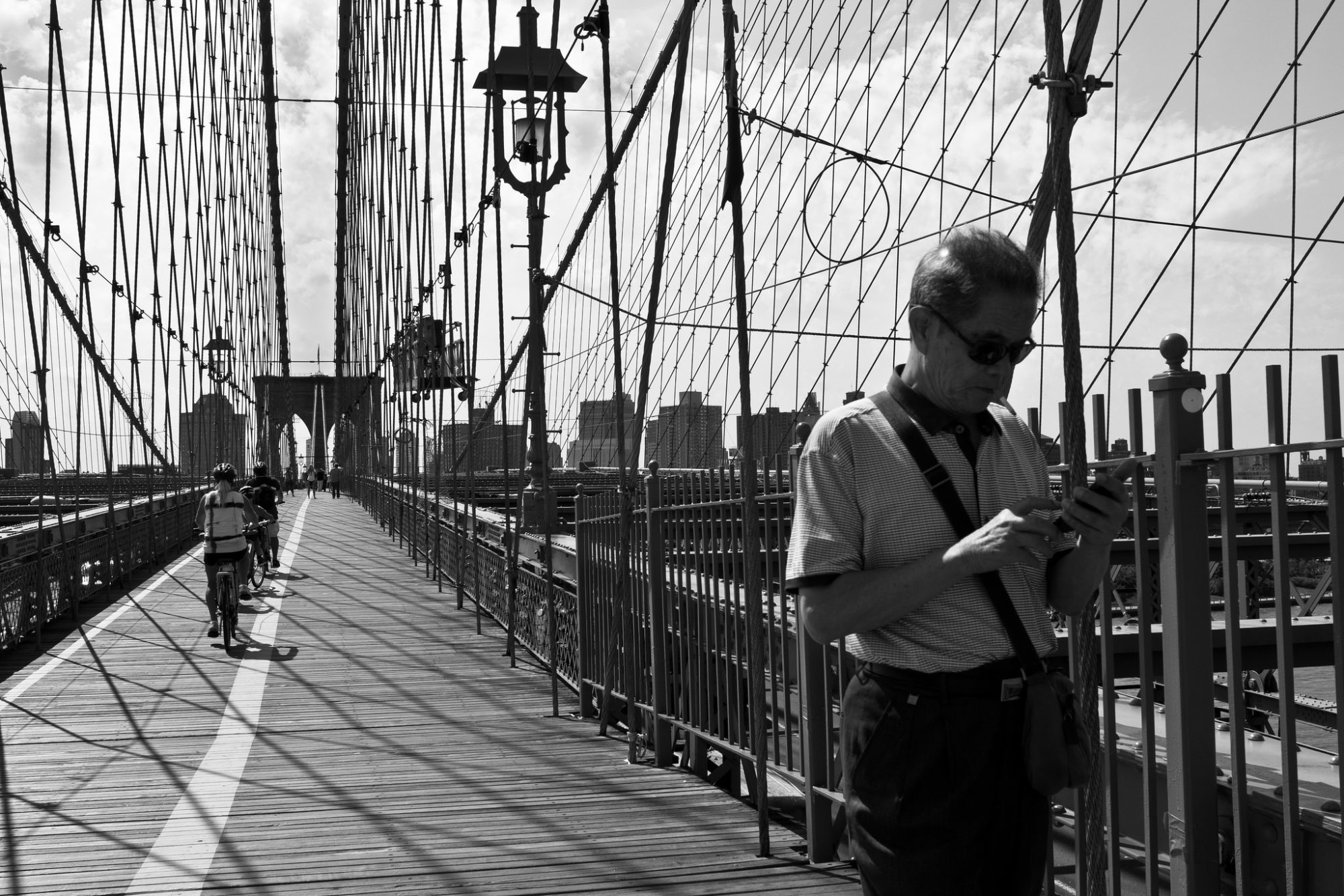
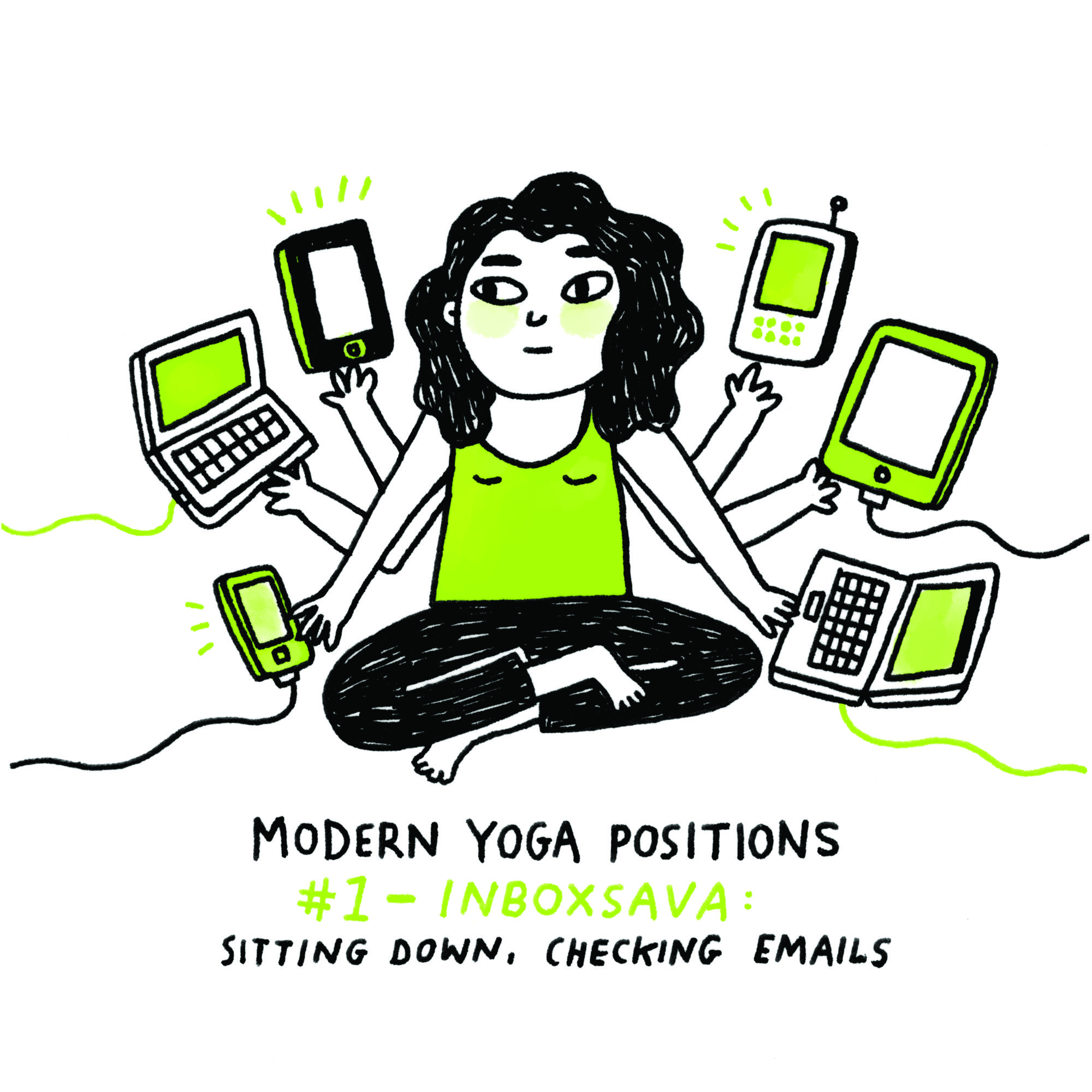 Just because we can take a laptop into the bathroom does not mean that this is a sensible thing to do. (Fecal matter can be found on one in six cell phones. Need I note that this is disgusting?) Similarly, your bed is for sleeping, not for checking Facebook, even though you can. Neither is it safe to text in the car, while driving yourself, nor is it polite if you’re a passenger in a car if the driver is a friend or someone expecting conversation.
Just because we can take a laptop into the bathroom does not mean that this is a sensible thing to do. (Fecal matter can be found on one in six cell phones. Need I note that this is disgusting?) Similarly, your bed is for sleeping, not for checking Facebook, even though you can. Neither is it safe to text in the car, while driving yourself, nor is it polite if you’re a passenger in a car if the driver is a friend or someone expecting conversation.
Tempted to check your email at a red light? Turn your attention to your breath and just breathe: you will gain more in productivity and well-being from the one-minute relaxation. Remember, boredom is not a health hazard, but technology overuse is.
Use this PDF to decide on the times during which you will not EVER use a device. This is a backup plan, for when your strategic checking times slip and become “just one quick check while I wait” (see previous classes in Unit 3 of the Flow Class for more about this).
This post is taken from The Science of Finding Flow, an online course I created as a companion to my book The Sweet Spot: How to Accomplish More by Doing Less.
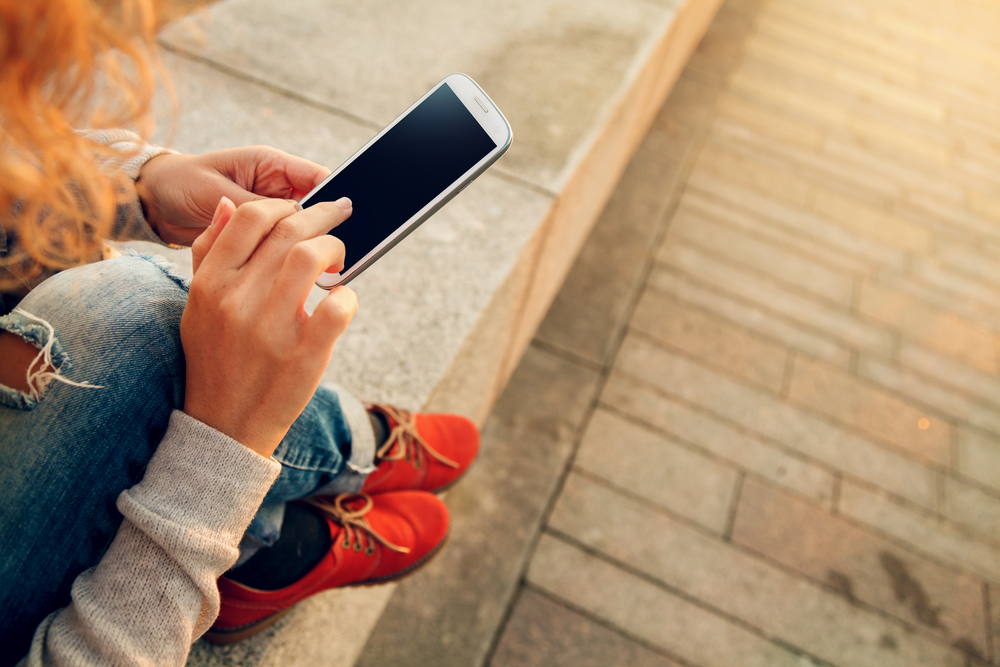
We all know we’d do well to disable the push features, alerts, and notifications on our mobile devices, desktop, and laptop computers that distract us. But this is a hard step for many people.
Good news: You don’t have to turn off your phone altogether. But we are far more focused (and therefore productive, successful, and often even happy) when we turn off distracting dings and vibrations when we are working or focusing on something besides incoming emails and texts.
Why? When we interrupt ourselves to check what just came in, we lose time, focus, and productivity (we are going to talk about multi-tasking in the coming classes). Most people do not have the mental fortitude it takes to ignore an incoming texts or emails–and even if we do have the self-discipline, research shows that just resisting impairs cognition measurably.
For now, start giving yourself the gift of being fully present with your attention wherever you are, feeling whatever you are feeling, even if that feeling is boredom (at first). Putting down your smartphone allows you to truly connect with the people who are in your presence, even if it is a checker at the grocery store that you don’t know. This will ultimately make you more productive, intelligent, and happy. I promise.
This post is taken from The Science of Finding Flow, an online course I created as a companion to my book The Sweet Spot: How to Accomplish More by Doing Less.
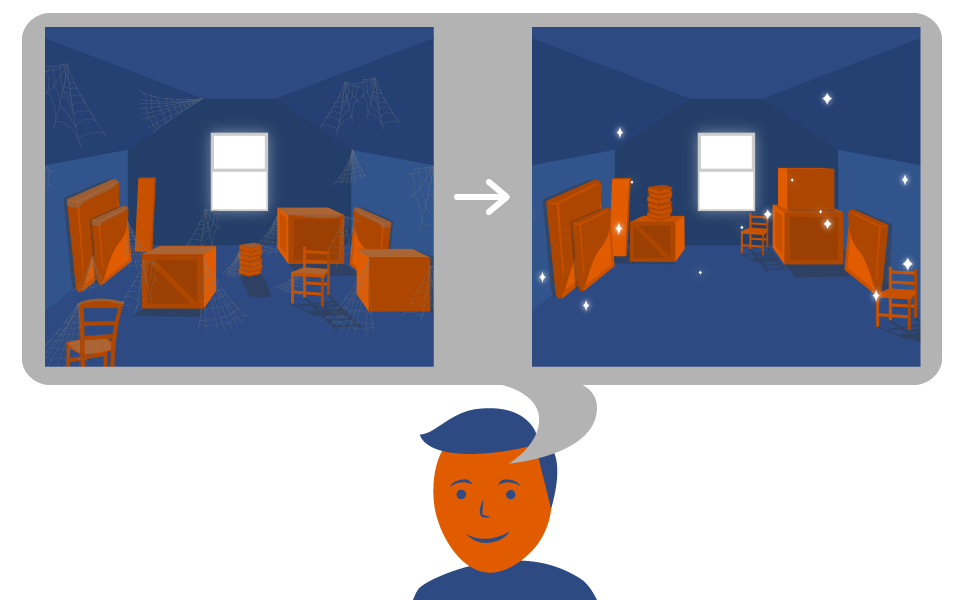
This video and post are from a series about how to focus from my online course, the Science of Finding Flow.
Although we usually assume that a state of deep concentration is hard to achieve (and getting harder these days, as the interruptions from our smartphone/email/texts mount) the truth is that we can access this wonderful state much more easily than we often realize. We just need to create a little routine for ourselves. You’ve already created most of it by making a plan to minimize interruptions and distractions. There are three more things for you to do:
Take a quick look at your task list, and decide what you will do today and when you will do it. When our subconscious mind doesn’t know when we will complete a task, it will often interrupt our flow state with intrusive reminders about what else we need to do. Research shows that our unconscious isn’t actually nagging us to do the task at hand but rather to make a plan to get it done. So scheduling a task can make a huge difference in our ability to focus on something else.
Another precursor to getting into The Zone is knowing where you are in your workflow. “That constant awareness of what is next is what keeps you focused,” Mihaly Csikszentmihalyi, author of Flow: The Psychology of Optimal Experience, told Entrepreneur magazine. “That’s where the engagement comes from.”
So note what you’ve just accomplished, what you hope to accomplish next, and what you’ll work on after that.
As I approach my tasks, I also find it helpful to take a quick peek at my calendar and email to clear mental clutter. Is there anything urgent? The idea isn’t to respond to emails; it’s a check that keeps me from worrying while I work that I should have checked my email, and keeps me from wondering if there is anything on my calendar that I should be preparing for.
You’ve planned out your focusing ritual already, by building a focusing fortress — now you need to enter it. Do this ritualistically and habitually—in the same order every single time. Eventually, you’ll start your focus routine and your brain will start doing this on autopilot. This routine signals to your brain that you are about to drop into a state of flow, and soon you’ll be able to drop in more and more quickly.
Rituals like these make it possible for ordinary people to do extraordinary work. #flow #thezone Share on XAfter I go through all my little desk-clearing, fortress-building tasks (same order every time, remember), I have a funny little calming ritual. I take three to five very deep, slow breaths, to signal to my brain and nervous system that I’m safe and calm. This gives me better access to the most creative and intelligent parts of my brain.
While I’m breathing deeply, I think about what I’d like to accomplish, and I ask a higher power (or my highest self?) for assistance. This is an act of openness and faith I don’t fully understand, but it works for me. There is research that indicates that prayer, which this is akin to, can be powerful. But it could also be that it is just a little intention setting ritual that tells my brain what to focus on.
Also while I’m breathing, I fill my consciousness with loving and playful thoughts, taking a moment to think about what will be fun about the task I’m about to do. I literally do a mini loving-kindness meditation, sending myself and all beings everywhere joy and ease. You’ll learn more about this in Unit 7: Flourish, but this is a VERY effective way to prime the brain for performance. (I know, sounds woo-woo, but try it. It works. And there is solid science to back it up.)
Elite performers—from Stephen Curry to Maya Angelou—train themselves to drop into The Zone unconsciously by performing little rituals like this. (Angelou said that she used her pre-writing routine to “enchant” herself.) Indeed, rituals like these make it possible for ordinary people to do extraordinary work.
This “class” is from “The Science of Finding Flow,” an online course I created as a companion to my book The Sweet Spot: How to Accomplish More by Doing Less. Want to go on to the next class or start the course from the beginning? It’s free! Just go to The Science of Finding Flow course page. Enjoy!